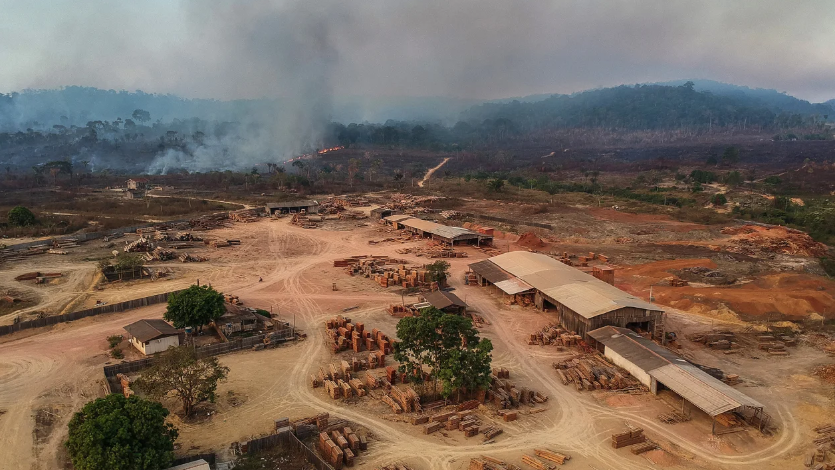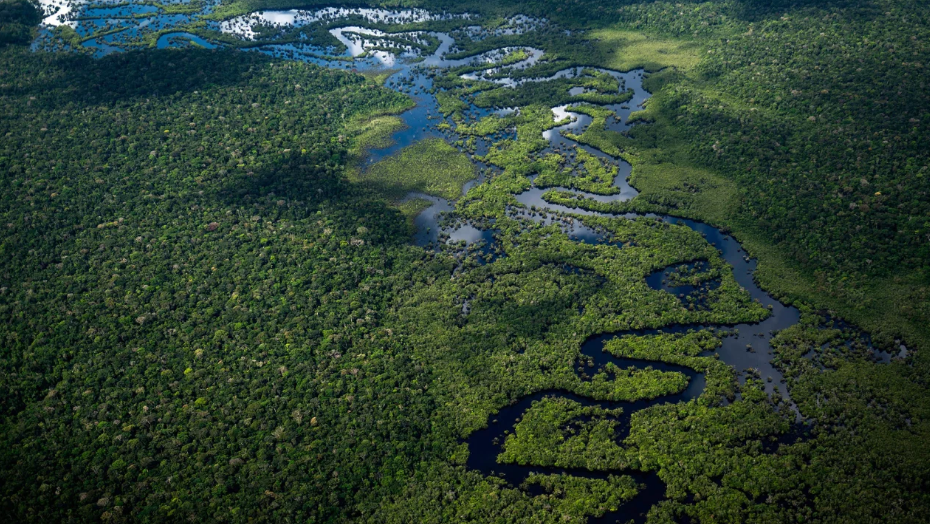Brazil has reached a significant milestone in its campaign against Amazon deforestation, which bodes well for environmental conservation. According to recent reports, deforestation rates in the Amazon rainforest reached a six-year low in July, falling by an incredible 66%. This huge decrease in deforestation represents a big victory in efforts to protect one of the world’s most important ecosystems.
The Amazon rainforest has long been a concern due to widespread deforestation caused by logging, agriculture, and mining. However, the most recent figures from Brazilian authorities show a much-needed shift in the right direction. The combined efforts to reduce deforestation and safeguard the Amazon’s tremendous biodiversity are beginning to bear fruit.
Deforestation In The Amazon Hit Six-year Low In July After Plummeting 66%
Credit: AFP
In July, about 500 square kilometres (193 square miles) of rainforest were cleared, a considerable decrease from the 1,487 square kilometres (574 square miles) removed in July of last year.
Since Luiz Inacio Lula da Silva’s inauguration as president in January, deforestation has significantly decreased. Lula has promised to end deforestation, which had accelerated under his predecessor, Jair Bolsonaro.
Marina Silva, Brazil’s environment minister, stated that government actions such as increased surveillance and monetary penalties had played a significant influence in reducing deforestation rates.
“It is the end of the expectation of impunity,” Silva said during a news conference to announce the results. “When you see an increase in operations… it creates a virtuous circle in which no longer expecting impunity.”
 Credit: Getty Image
Credit: Getty Image
The slower rate of deforestation is encouraging news when the Amazon is still seriously endangered.
According to Mikaela Weisse, director of the World Resources Institute’s (WRI) Global Forest Watch, the data is “incredibly important and promising.”
“The fact that we’re still seeing these massive declines compared to last year and previous years in July, I think is very significant,” she said to CNN. “Lula and his administration are taking deforestation much more seriously than their predecessor.”
Some scientists have cautioned that the rainforest may be approaching a tipping point that may change into a grassland savannah. This would have far-reaching consequences for both biodiversity and the climate issue, as the Amazon stores massive amounts of carbon and considerably influences global weather patterns.
 Credit: Getty Image
Credit: Getty Image
“The Amazon rainforest is an engine for rainfall and precipitation throughout the region.” As a result, we should expect significant effects on agricultural productivity, for example, in other parts of Brazil and throughout South America,” Weisse added.
According to Weisse, if the Amazon is not conserved, it will be far more difficult to keep global warming to 1.5 degrees Celsius above pre-industrial levels. Failure to meet this threshold risks causing catastrophic tipping points, such as destroying coral reefs and melting polar ice sheets.
Weisse believes that more work is needed to keep deforestation rates low. “You can’t just lower the rates and expect them to stay that way.”
What do you think about it? Do let us know in the comments.
For more trending stories, follow us on Telegram.
Categories: Trending
Source: vtt.edu.vn